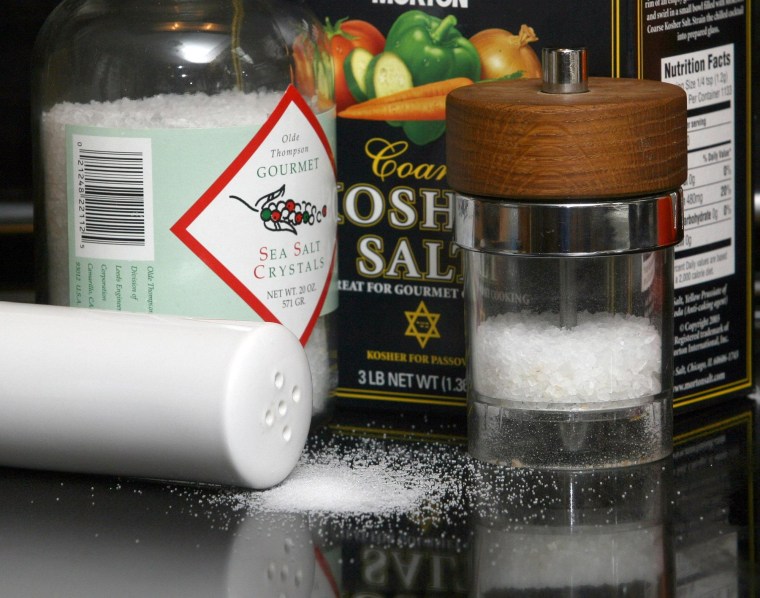New Yorkers will start getting menu warnings about high-salt food after the city’s board of health unanimously approved the measure Wednesday.
Chain-restaurant meals that provide more than the daily limit of 2,300 milligrams of sodium will have to carry a visual tag — an image of a white salt shaker inside a black triangle.
It’s the first city to require warning labels for salt and it’s the latest effort by city health officials to help residents choose healthier foods. The city’s also banned trans-fats, although an effort to limit sales of giant sugary sodas failed.
“Americans consume excessive amounts of sodium. Recent estimates indicate that the typical daily sodium intake of more than 95 percent of American adults exceeds the recommended daily limit of no more than 2,300 mg,” the city health department says in a statement.
“A 2010 study conducted found that more than 80 percent of adults in NYC exceeded recommended daily sodium limits, and average daily sodium consumption among New Yorkers was more than 3,200mg. The NYC study also revealed disparities in consumption with higher sodium intake among non-Hispanic Blacks and Hispanics compared to non-Hispanic Whites.”
The measure goes into effect in December.
Eating too much sodium can raise blood pressure, which in turn causes heart disease, the No. 1 killer in the U.S. A third of U.S. adults have high blood pressure, and at least a quarter of those cases are affected by sodium intake. The American Heart Association advises people with high blood pressure to eat less than 1,500 mg of sodium a day.
"Menu items that are promoted as healthy options, like salads, can contain high levels of sodium."
A team at the Centers for Disease Control and Prevention found earlier this year that packaged foods are laden with salt – even those labeled as “healthy”.
Guidelines from the FDA and U.S. Department of Agriculture aim to get Americans to eat more fruits and vegetables and less fat, sodium and sugar.
The FDA won't let a food manufacturer label food as healthy unless it contains less than 480 milligrams of sodium in a single serving of "individual" food such as bread, or less than 600 mg in a main dish meal.
The Salt Institute criticized the decision, saying people just naturally eat the "right" amount of salt.In the last decade research seems to indicate that our bodies answer to a higher calling than the whims of bureaucrats. It appears that people, like animals, naturally seek out just about the right amount of salt over the course of a day," Lori Roman, President of the Salt Institute, said in a statement.

